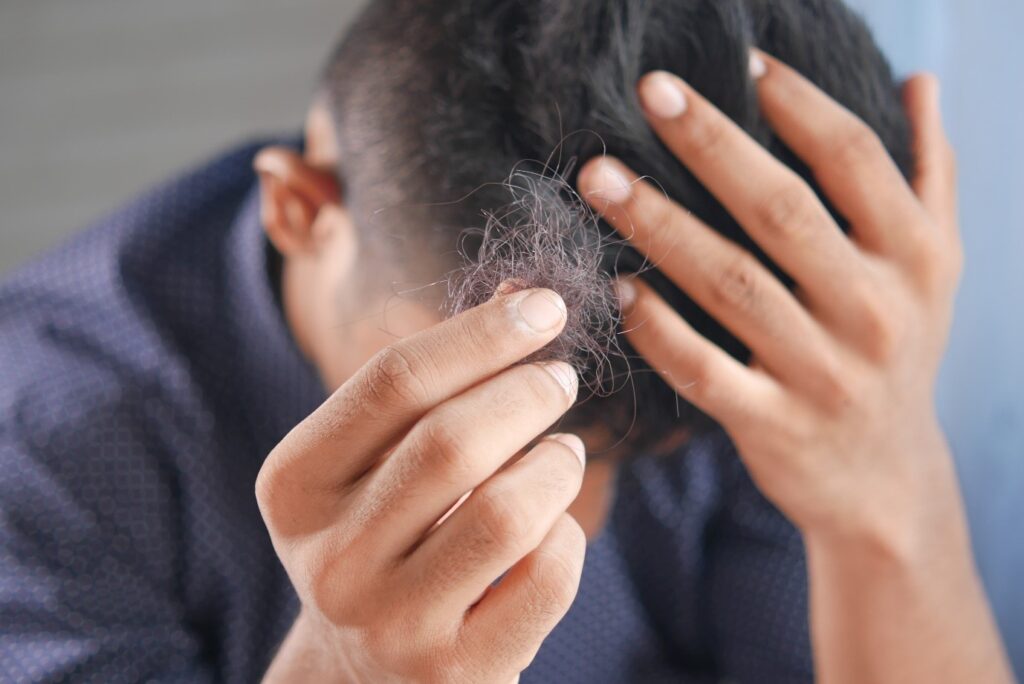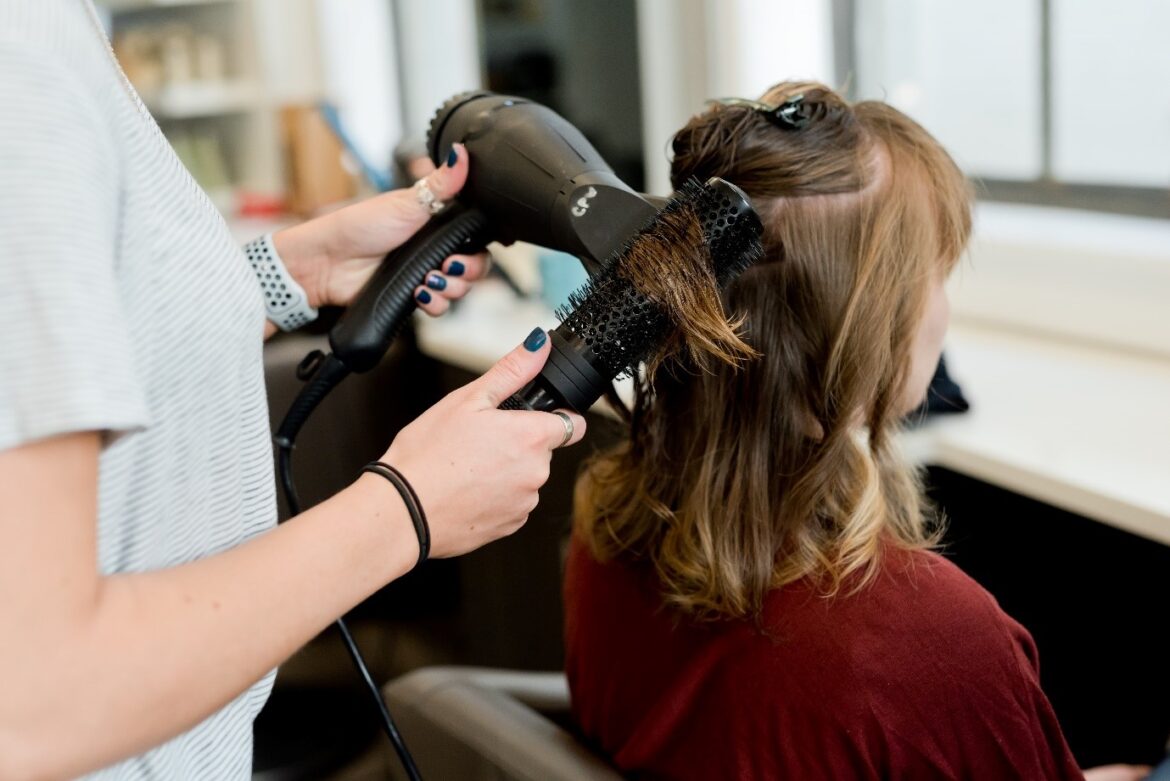You undoubtedly think about your hair regularly, whether you’re worried about a poor hair day or enjoying a lovely blowout, or whether you should try out the new style your favorite star is sporting. However, you may be overlooking signs that your hair is giving you about your health. According to research, changes in the appearance, texture, or thickness of your hair can indicate underlying health issues.
These issues can get serious and can worsen your hair conditions. But you can save yourself from this. Continue to read further to find some solutions.
There can be many possible reasons for the worsening condition of your hair from stress to medical.
Here’s how to detect if your hair loss is caused by a medical condition, genetics, stress, or a dietary deficiency.
- Greying Can Be Caused by Stress (and Genes)
Anyone who has watched presidential hair change from campaign to the campaign has noticed that stress causes hair to grey, and a study on mice published in the journal Nature suggested that chronic stress may cause DNA damage and reduce the supply of pigment-producing cells in hair follicles, contributing to greying hair. Hair loss is another side effect of stress.
Oxidative stress, another type of stress, may also contribute to grey hair. “Oxidative stress,” says Paradi Mirmirani, MD, a dermatologist from The Permanente Medical Group in Vallejo, California, “may disrupt pigment-producing cells.”
Going grey is a very normal part of growing older, as your hair follicles produce less pigment as you age. Dr Mirmirani adds that your genes play a role in when your hair greys – ask your parents how old they were when they noticed the first signs of silver, and you might follow in their footsteps. A study published in the journal Nature Communications in March 2016 was the first to uncover the gene that causes grey hair.
- Cushing’s Syndrome Could Cause Brittle Hair
Cushing’s syndrome is an uncommon disorder characterized by too much cortisol, the body’s principal stress hormone. Brittle hair is one of the symptoms. However, as Mirmirani points out, there are other alternative options Cushing’s syndrome can manifest itself in various ways, such as elevated blood pressure, weariness, and back pain.
Changing the dose of medications that may be causing Cushing’s syndrome, such as glucocorticoids, which are steroids used to treat inflammation caused by several disorders, may be part of the treatment. Others may require surgery, chemotherapy, or radiation therapy to correct their adrenal gland’s excessive cortisol production.

- Hair Loss Could Indicate Thyroid Problems
According to Mirmirani, those with hypothyroidism, a disorder in which the thyroid gland does not create enough thyroid hormones, may experience increased hair shedding and a change in hair appearance.
Hypothyroidism affects about 4.6 percent of the US population aged 12 and up, however, the majority of instances are minor. It can lead to hair loss as well as other symptoms like fatigue, cold intolerance, joint discomfort, muscular pain, a swollen face, and weight gain. The disorder is diagnosed with a thyroid-stimulating hormone (TSH) test, and treatment involves taking thyroid medication.
In addition to thinning hair, many thyroid issues put you at risk for alopecia areata, an autoimmune hair loss syndrome. This type of hair loss is caused by the immune system attacking the hair follicles, resulting in circular patches of unexpected hair loss.
- Hair Loss Could Indicate Anemia
If you see a lot of hair in your hairbrush or on your shower floor all of a sudden, it could be an indication of low iron storage or anaemia, and you should get tested. “When you complain of hair changes, we take another blood test,” Mirmirani explains. She says she’s more likely to order this blood test for vegetarians or women with heavy periods, as both of these factors raise the risk of hair changes caused by low iron.
According to Rebecca Baxt, MD, a dermatologist in Paramus, New Jersey, “it’s not understood why low iron might cause hair loss,” but iron is necessary for many biological and chemical activities, including hair growth.
Hair shedding can also occur (temporarily) in response to rapid increases in estrogen levels, as seen following pregnancy or the discontinuation of birth control tablets.
- A Protein Deficiency Could Cause Hair Loss
Protein is necessary for hair growth and health (a lack of protein has been linked to hair thinning and loss). According to Mirmirani, most Americans don’t have a protein deficiency because they only need 0.8 grams of protein per kilogram of body weight. Nonfat Greek yoghurt, tilapia, chickpeas, and chicken breast are all good sources of protein.
Protein digestion may be problematic for people who have gastrointestinal disorders or who have recently had gastric bypass surgery. These unique circumstances will require the assistance of your doctor. However, even in women, the majority of hair thinning is likely related to heredity.
- Dandruff can be identified by white or yellow flakes.
Dandruff is a persistent scalp condition that causes yellow or white flakes in your hair, shoulders, and even brows. Dandruff is usually handled with over-the-counter specialized hair shampoos or prescription shampoos and does not suggest a major health condition.
According to the Mayo Clinic, a condition known as seborrheic dermatitis is one of the most prevalent causes of dandruff.
Seborrheic dermatitis is characterized by red, oily skin that is coated with flaky white or yellow scales.
Malassezia, a yeast-like fungus, can similarly irritate the scalp.
Dandruff can be caused by not shampooing enough, sensitivity to hair care products, and dry skin. (Dandruff is more common in the winter when indoor heating dries out the skin.)
- Damaged hair might conceal other health issues.
Although hair can reveal information about your health, Mirmirani says that most patients are concerned about the damage caused by over-colouring and heat-treating their hair. According to Tania Moran, a certified hairstylist at Swank Hair Salon in New York City, too much heat, such as from daily flat iron use or daily blowouts, can damage your hair, making it dry, brittle, and difficult to maintain. Moran recommends just using one hot tool every day (infrequent double heat processes are okay, but not daily). Always use products with protective components while applying heat to your hair, she says.
According to Moran, getting your hair professionally colored is unlikely to cause any damage, but bleaching and applying boxed hair color at home can have negative consequences. You can protect your hair from damage by using the appropriate products. “Use proper color-preserving and hydrating shampoo after color treatment,” Moran advises.
Most importantly, heavily treated hair might obscure some issues, making it impossible to see or feel what your hair can reveal about your health.
These were some of the reasons that can be responsible for your deteriorating hair conditions. As everyone is concerned about their hair, it is probably wise to prevent it by detecting issues at an early stage so that you can help heal your hair and improve its condition as soon as possible.


